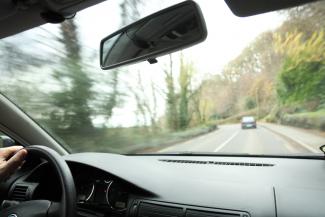
Look at these examples to see how used to, get used to and be used to are used.
I used to want to be a lawyer but then I realised how hard they work!
How's Boston? Are you used to the cold weather yet?
No matter how many times I fly, I'll never get used to take-off and landing!
Try this exercise to test your grammar.
Read the explanation to learn more.
Grammar explanation
Used to + infinitive and be/get used to + -ing look similar but they have very different uses.
used to
We use used to + infinitive to talk about a past situation that is no longer true. It tells us that there was a repeated action or state in the past which has now changed.
She used to be a long-distance runner when she was younger.
I didn't use to sleep very well, but then I started doing yoga and it really helps.
Did you use to come here as a child?
be used to and get used to
Be used to means 'be familiar with' or 'be accustomed to'.
She's used to the city now and doesn't get lost any more.
He wasn't used to walking so much and his legs hurt after the hike.
I'm a teacher so I'm used to speaking in public.
We use get used to to talk about the process of becoming familiar with something.
I'm finding this new job hard but I'm sure I'll get used to it soon.
It took my mother years to get used to living in London after moving from Pakistan.
I'm getting used to the noise now. I found it really stressful when I first moved in.
Be used to and get used to are followed by a noun, pronoun or the -ing form of a verb, and can be used about the past, present or future.
Do this exercise to test your grammar again.




Hello again mehransam05,
I think my reply above has answered these questions, but if I have missed something, please feel free to ask again.
All the best,
Kirk
The LearnEnglish Team
Hi Lyvo,
When we say we are used to something we mean that it is no longer strange or new for us. In other words, there is an implication that at some point in the past it was strange or new.
Sentence C is the correct answer because it contains this sense of change. It is normal for me now implies that it wasn't normal at some point but has become so.
Sentence A has the opposite meaning. It suggests that before a point in the past (which is not given) the activity was normal, but then became strange. For example, you might continue like this:
Peter
The LearnEnglish Team
Helo salvio90,
Your friend is correct :)
You have two time references here:
The two verb constructions you are choosing between are be used to and get used to. One describes a state (be used to) and the other a process or a change (get used to).
The process would take place at some point before its result. In other words, when you talk about the process, you are looking back from a point later on (two days after arriving). To talk about events in the past when we are looking back from another point in the past we use a past perfect form, so hadn't got used to is the correct form.
The state is a description of a point in time when that state is either true or not. To describe this, we use a past simple form, so wasn't used to is correct.
I hope that helps to clarify it for you.
Peter
The LearnEnglish Team